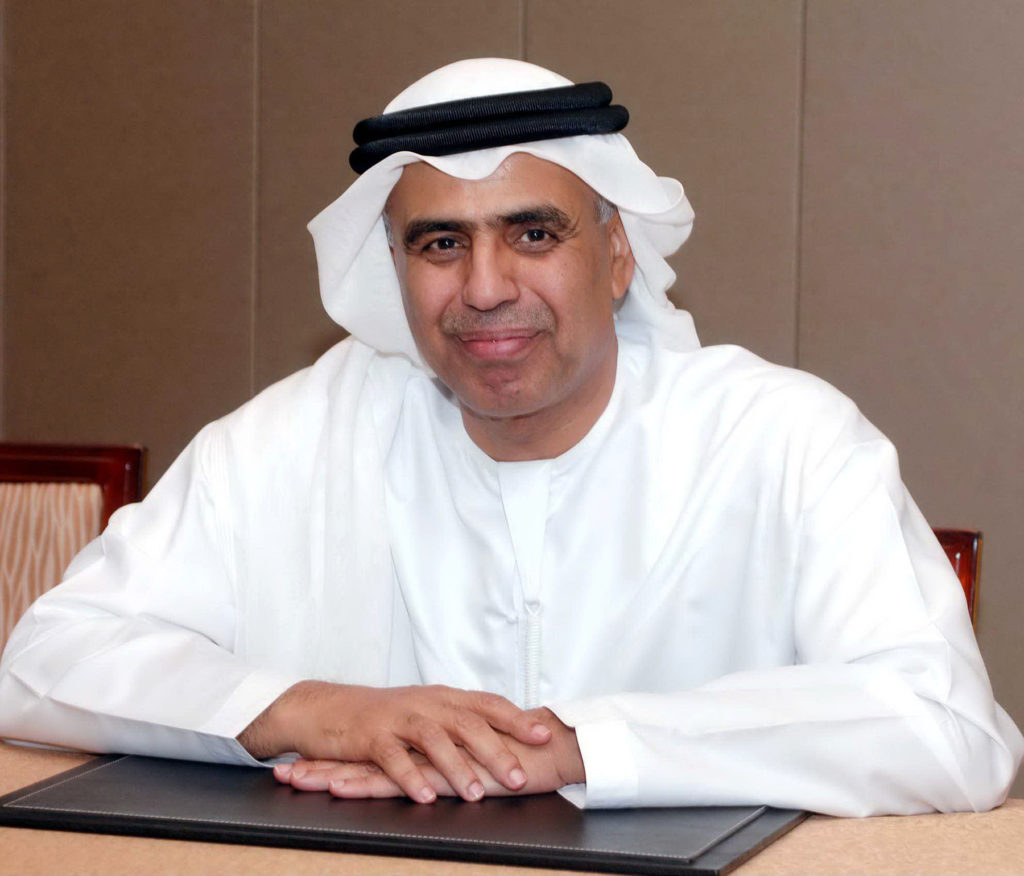The UAE’s delegation, headed by HE Obaid Humaid Al Tayer, Minister of State for Financial Affairs, took part in the Spring Meeting of the International Monetary Fund (IMF) and the World Bank Group (WBG), which was held from 15th to 17th April in Washington DC.
During the event HE Al Tayer held a number of bilateral meetings with global leaders and experts, in addition to heading the Arab Group at the International Monetary and Financial Committee (IMFC).
The UAE delegation included HE Khalid Ali Al Bustani, Assistant Undersecretary of International Financial Relations Sector in the Ministry of Finance (MoF), Ali Hamdan Ahmed, Director of International and Regional Financial Organisations Department and Hamad Issa Al Zaabi, Director of the Office of the Minister of State for Financial Affairs.
HE Al Tayer discussed with Managing Director of the IMF, Christine Lagarde, a number of key topics to further promote cooperative efforts between the UAE and the IMF. Conversations aimed to encourage the IMF to provide aid to Arab countries to support growth efforts and job creation initiatives, in addition to creating innovative funding mechanisms for the region. Furthermore, Lagarde’s invitation to the upcoming World Government Summit, which will be held in February 2017, was also discussed.
HE Al Tayer also met with Dr. Hazem Al Beblawi, Executive Director of the IMF, where they talked about the topics that were later discussed during the IMFC meeting. They also discussed the IMF’s plans to supports Arab countries moving forward, and agreed that the IMF would share data on the financial aid provided by the Fund to the Arab countries over the past three years.
During his meeting with Dr. Mirza Hassan, Executive Director of the Arab Group at the World Bank, HE Al Tayer discussed the WBG’s new strategy, and methods of enhancing cooperation between the WBG and development funds to support the Arab region. Talks were also held about joint work between the WBG and the initiatives of His Highness Sheikh Mohammed bin Rashid Al Maktoum, UAE Vice President, Prime Minister and Ruler of Dubai, in addition to the upcoming study to be completed for the UAE on empowering women in the financial and economic sectors.
The Financial Affairs Minister also met with Zeine Zeidane, Head of the IMF mission for Article IV discussion, where they talked about Ministry of Cabinet Affairs and Future’s invitation to Christine Lagarde to the upcoming World Government Summit, which will be held in February 2017, and about organising the Arab Fiscal Forum at its sidelines. The two also discussed the topics that the mission will be highlighting during its visits to the UAE in April and May 2016. The two also spoke about the latest trends in the global economic scene.
HE Al Tayer headed the Arab Group at the IMFC meeting. During his speech, he spoke about global economic trends, financial and monetary policies, and how to achieve financial stability worldwide. He called on countries to confront global inflation challenges, and to support the economies of developing nations, given that goods and assets are decreasing in value. This can be achieved through the IMF and governments monitoring efforts to develop and implement financial policies aimed at raising trust in local and global economies.
HE Al Tayer: “Advanced nations are prioritising efforts to lessen the negative effects of deflation and to create new avenues for growth. All countries should be developing policies that address their own systems and that help in growing short-term reserves. Clear standards needs to be placed to measure initiatives that encourage innovation, enhance policies related to the workplace, and grow national GDP.”
He also added that the Middle East is facing significant challenges and as a response to that, GCC countries have adopted a number of initiatives aimed at enhancing its financial standing through restructuring oil subsidy policies and through adjusting spending. “Gulf countries have begun processes to remove oil subsidies and enhance tax base to grow financial reserves and to meet spending requirements.”
At the event, HE Khalid Ali Al Bustani, along with specialist and international economist, participated in a book launch session, following an invitation by the IMF. The book discusses economic diversification in the GCC.













